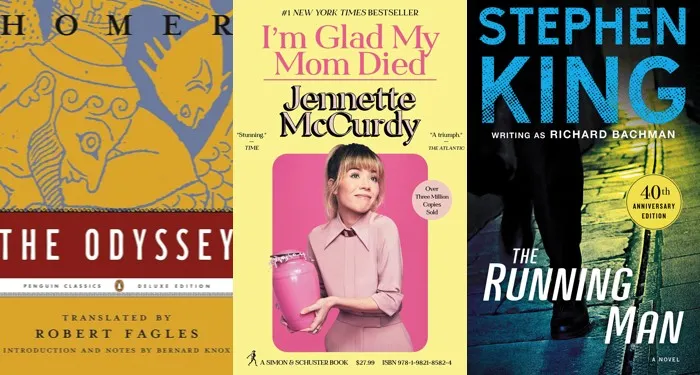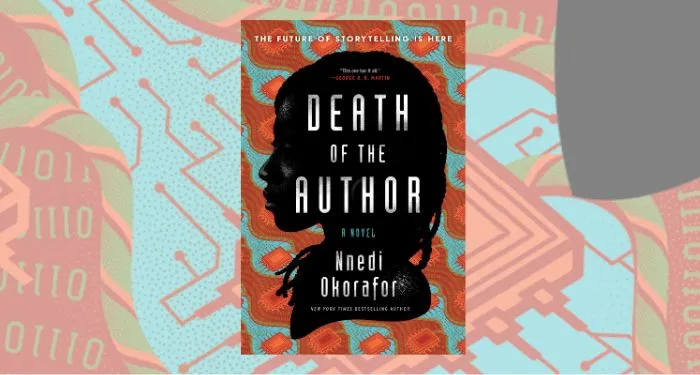For Authors
Fan fiction is everywhere, from the depths of online archives to the origin stories of bestselling authors. While it can be a powerful way to practice your craft and build a fanbase, it also exists in a legal and creative gray area that every writer should understand. Fair use protections only go so far, as shown by a recent case involving a James Bond tribute that attracted unwanted attention from the copyright holder.
Still, many franchises embrace the passion of their fans, and some writers have even turned early fan fiction into full-fledged careers. Like most creative shortcuts, though, writing in someone else’s universe comes with both rewards and risks. This week, Ginger explores how fan fiction can sharpen your skills, grow your audience, and even serve as a stepping stone into self-publishing. But only if you navigate it wisely.
It’s a been a while since I’ve written a post involving James Bond, so straighten your bow-tie and strap on your PPK, because this week it’s going to be a good one.
For the past few weeks, while scrolling through Instagram and sipping my morning coffee, I’ve been following an account called @bondinspiration, who describe themselves as “original spy thriller storytelling, honouring the legacy of Ian Fleming.” They were posting regular episodes of a modern-day spy adventure featuring everybody’s favorite British secret service, and I was kind of digging it. The vibe was pure 007—exotic locales, sharp dialogue, and just enough romance to make you smirk—and I’ve always enjoyed reading James Bond fan fiction because it’s interesting to see how other writers might handle the challenge of writing a classic 007 story.
But a few weeks ago, @bondinspiration published a post announcing that they’d been slapped with a cease-and-desist letter from Ian Fleming Publications, the folks who own Bond’s copyright. Apparently, their fan fiction crossed a line, and they were asked to remove any reference to James Bond or any other characters created by Ian Fleming in their Instagram story.
@bondinspiration complied, which I personally think was the right thing to do. The legality of fan fiction is a hotly debated topic, but as James Bond fans I think it’s important to show respect to the estate of Ian Fleming and show them that we support them in what they do, and are respectful of the intellectual property they own.
However, this cease-and-desist letter sparked something of a heated debate in the comments about Bond and copyright, especially since the copyright for Casino Royale expires in 2035 (yep, not a typo, in just ten years from now we’ll be able to write our own James Bond books in a similar fashion to how Sherlock Holmes stars in so many self-published adventures these days.)
It got me thinking. Fan fiction’s a wild, wonderful beast, but does it break the law? And where does fan fiction fit in for self-published authors like us? Let’s discuss the subject a little, since I think it’s a fascinating subgenre of modern fiction.
What is Fan Fiction?
Fan fiction’s a cultural juggernaut. According to a 2020 study by the Fan Studies Network, over 10 million fan fiction stories are hosted on platforms like Archive of Our Own (AO3) and FanFiction.net, with millions more on Wattpad and Tumblr. In 2021, AO3 reported a 30% spike in traffic during the pandemic, as fans flocked to write and read about their favorite characters.
And it’s not just a niche hobby, fan fiction’s where big names got their start. Take E.L. James, who turned her Twilight fan fiction, Master of the Universe, into Fifty Shades of Grey by swapping Bella and Edward for Anastasia and Christian. That steamy trilogy sold over 150 million copies, proving fan fiction can be a launchpad to stardom. Other authors, like Cassandra Clare (City of Bones) and Anna Todd (After), also cut their teeth writing fan fiction, honing their craft in the sandbox of existing worlds.
Why’s fan fiction so addictive? I like to call it “emotional pornography.” It’s not about smut (though, sure, there’s plenty of that). It’s about diving straight into the emotional deep end. When you write fan fiction, you’re working with characters everyone already knows: Bond’s swagger, Harry Potter’s courage, or Spock’s logic. There’s no need to spend pages building them up; you can toss them into high-stakes drama, steamy romance, or gut-wrenching angst from page one.
Readers love it because they can pick a story to match their mood. Feeling blue? Grab an angsty Star Wars fic where Rey and Kylo Ren wrestle with their demons. Need a pick-me-up? There’s an uplifting Marvel story where Tony Stark mentors a young Spider-Man. It’s instant gratification, and that emotional hit keeps fans coming back.
But here’s the rub: Fan fiction’s a legal gray area. Under U.S. copyright law, original creators own the rights to their characters, settings, and stories. Fan fiction, by using those elements without permission, technically infringes on that copyright. If you’re writing about Bond seducing a new villain or Luke Skywalker training a new Jedi, you’re playing in someone else’s sandbox.
The saving grace? Fair Use doctrine, a part of U.S. copyright law (Section 107) allows for limited use of copyrighted material without permission. Fair Use considers four factors: The purpose of the use (non-commercial is safer), the nature of the original work, the amount of the original used, and the effect on the original’s market value. Non-commercial fan fiction often squeaks by because it doesn’t directly compete with the original and can even boost its popularity. But if you start selling your Star Trek novel or using Bond in a way that could “harm” the brand, you’re begging for a cease-and-desist letter like @bondinspiration got.
Some franchises play nice with fan fiction, recognizing it strengthens their brand. Take Star Trek, for example. Paramount and CBS have guidelines allowing non-commercial fan works, and they’ve tolerated projects like Star Trek: Farragut, a YouTube series that’s been running since 2006 with fan donations covering production costs. Star Trek: New Voyages and Star Trek: Hidden Frontier are other fan films that thrive online, often with tacit approval, because they keep the fandom buzzing.
Star Wars is similar. Lucasfilm rarely cracks down on non-commercial fan fiction or films, as long as they don’t cross into profit-making territory. These companies know fan works fuel engagement, keeping fans invested between official releases.
But there’s a line. In 2015, Paramount sued Axanar, a Star Trek fan film project, because it raised over $1 million on Kickstarter to build a professional studio. That wasn’t just fan passion; it was a commercial venture piggybacking on Star Trek’s IP, and the lawsuit shut it down.
Amazon tried to bridge this gap with Kindle Worlds, a platform launched in 2013 where writers could publish fan fiction for licensed properties like Vampire Diaries or G.I. Joe and earn royalties. It was a bold idea—legal fan fiction with creator approval—but it flopped. By 2018, Kindle Worlds was dead, partly because the restrictions (pre-approved worlds, heavy editorial oversight) stifled the freewheeling spirit of fan fiction. Fans didn’t want a corporate leash. They wanted to write what moved them, not what Amazon greenlit. In fact, there’s a lesson there for us self-published authors: fans crave authenticity, not sanitized cash grabs!
How does Fan Fiction fit in with Self Publishing?
Which brings us to self-publishing. I don’t mind admitting that I don’t just want people to read my fiction, I want to get paid for it. With that in mind, why should self-published authors care about fan fiction? After all, it’s not like we can sell it.
Well, maybe not, but it’s still a fantastic sandbox to hone your craft. Writing about Darth Vader’s inner turmoil or a new Harry Potter adventure lets you practice dialogue, pacing, and emotional beats without building a world from scratch. Platforms like AO3 or Wattpad offer instant feedback from passionate readers, something you won’t get slaving over a manuscript all on your lonesome. I’ve even dabbled in fan fiction myself, with a Thor and Loki love-triangle that taught me how to nail tension and banter. The comments from readers—brutal, kind, and everything in between—sharpened my skills faster than any writing workshop.
But here’s the kicker: As fun as fan fiction is, the real magic happens when you create your own worlds. Fan fiction’s a great warm-up, but it’s like singing karaoke—you’re still using someone else’s song. Crafting your own characters and settings, even if they’re inspired by Star Wars or Bond, is where you’ll truly find your voice.
And as my recent article about inspiration and plagiarism covers, fan fiction is often a great segway into original fiction. My Codename: Mistletoe novel owes a debt to Die Hard, but its original characters and plot let me tell a story that’s uniquely mine. High Point was inspired by Star Wars, but most readers will never recognize that. That’s what makes writing satisfying, and it’s what readers crave from self-published authors.
Sure, Fifty Shades started as fan fiction, but E.L. James made it her own by “filing off the serial numbers”—changing names and details to dodge copyright issues. You can do the same, taking the spark of inspiration and building something legally and creatively distinct out of it.
Fan fiction’s a tightrope. It’s a playground for creativity, protected (barely) by Fair Use as long as it’s non-commercial, but it can land you in hot water if you push too far. That being said, it’s a low-stakes way to practice the craft of writing, connect with fans, and learn what makes stories successful. In the case of @bondinspiration, it even went so far as to deliver something that Ian Fleming Publications hasn’t given us since 2023, an entirely original James Bond adventure.
(Perhaps that’s why they objected to it so vehemently!)
So, I’d say delve into fan fiction whenever the mood strikes you, but don’t stay in that sandbox forever. Use what you learn to craft your own worlds, where you’re not just borrowing Bond’s tuxedo, you’re tailoring your own. That’s where you’ll find the stories that define you and hook readers who’ll follow you anywhere. You can use fan fiction as a great foundation to find your voice, but you’ll need to step beyond those confines if you want to speak loud enough for paying readers to hear you.
Or, at least, that’s my opinion on the subject. What do you think? Are you a fan of fan fiction? Have you written any yourself? In fact, do you have a fan fiction story you’re especially proud of, or one which inspired a later work of original fiction? I’d love to read it! Drop a link to it in the comments section below!
Share this blog
About the Author

Ginger is also known as Roland Hulme - a digital Don Draper with a Hemingway complex. Under a penname, he's sold 65,000+ copies of his romance novels, and reached more than 320,000 readers through Kindle Unlimited - using his background in marketing, advertising, and social media to reach an ever-expanding audience.



















 English (US) ·
English (US) ·